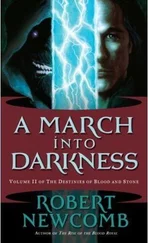Robert Pirsig - Lila. An Inquiry Into Morals
Здесь есть возможность читать онлайн «Robert Pirsig - Lila. An Inquiry Into Morals» весь текст электронной книги совершенно бесплатно (целиком полную версию без сокращений). В некоторых случаях можно слушать аудио, скачать через торрент в формате fb2 и присутствует краткое содержание. Жанр: Современная проза, на английском языке. Описание произведения, (предисловие) а так же отзывы посетителей доступны на портале библиотеки ЛибКат.
- Название:Lila. An Inquiry Into Morals
- Автор:
- Жанр:
- Год:неизвестен
- ISBN:нет данных
- Рейтинг книги:3 / 5. Голосов: 1
-
Избранное:Добавить в избранное
- Отзывы:
-
Ваша оценка:
- 60
- 1
- 2
- 3
- 4
- 5
Lila. An Inquiry Into Morals: краткое содержание, описание и аннотация
Предлагаем к чтению аннотацию, описание, краткое содержание или предисловие (зависит от того, что написал сам автор книги «Lila. An Inquiry Into Morals»). Если вы не нашли необходимую информацию о книге — напишите в комментариях, мы постараемся отыскать её.
Lila. An Inquiry Into Morals — читать онлайн бесплатно полную книгу (весь текст) целиком
Ниже представлен текст книги, разбитый по страницам. Система сохранения места последней прочитанной страницы, позволяет с удобством читать онлайн бесплатно книгу «Lila. An Inquiry Into Morals», без необходимости каждый раз заново искать на чём Вы остановились. Поставьте закладку, и сможете в любой момент перейти на страницу, на которой закончили чтение.
Интервал:
Закладка:
Lila turned on another electric light over the chart table and found a deep bin where a dozen or so different types of pots and pans were dumped together in a cluttered jumble. The bin was at the back of the counter, so that the only way to reach them was to lie on her stomach on top of the chart table and hang her arm down inside the rectangular hole, and fish. The fishing for pans made a tremendous clanging racket. She hoped the noise would impress on the Captain the condition of his housekeeping.
There wasn’t any deep fryer. She felt a large frying pan and pulled it out. It was a good stainless steel pan, almost new. But it wasn’t deep enough for cooking oil.
She went back in the bin and clanged some more and this time came out with a deep pot and a matching lid. That should work.
I don’t suppose you have a wire basket for French fries, she said.
No, the Captain said, not that I know of.
It was all right. She could get by with a slotted spoon.
She looked for one and found it and also a vegetable peeler next to it. She tried the vegetable peeler on one of the potatoes. It was nice and sharp. She started peeling. She liked to peel long, hard, smooth Idaho potatoes like this. These were going to make good French fries. She let the peels shoot into the sink, so when she was done she could scoop them out with her hand.
What will you do after you get to Florida? she said to the Captain.
Just keep going, probably, he said.
A flame came up from the Hibachi and she could see his face suddenly in the light. It looked tired.
Just keep going where? she asked.
South, he said. There’s a town where I used to live in Mexico, down on the Bay of Campeche. I’d like to go back there for a while. And see if some people I used to know are still around.
What were you doing there?
Building a boat.
This boat?
No, a boat that never got finished, he said. Everything went wrong.
He poked the charcoal in the Hibachi with the edge of the grate.
With boats you always get seven kinds of trouble at once, he said. The keel was done and the frames were up. We were ready to start planking, and the Government declared the forest we were in to be "veda," I think they called it, meaning no more wood.
We went to Campeche for some more wood, paid for it — it never got sent. No way for a foreigner to sue them in Mexico. They knew that.
Then all our fastenings from Mexico City "disappeared." The paint got delivered but it disappeared after we put some on a dinghy.
Who’s "we"? Lila asked.
Me and my boat-carpenter.
While she peeled the potatoes the Captain came down the ladder. He lit the kerosene lamp, then turned off the electric lights, then took out some glasses from a shelf, then opened the icebox. He filled the glasses with ice, opened the mix and poured it. When he poured the whiskey he held up her glass and she told him when to stop.
Then he said, Here’s to Pancho Piquet.
Lila drank. It tasted fine.
She showed him the peeled potatoes. I’m so starved I could eat them raw, she said, but I’m not going to.
She found a cutting board and started to cut the potatoes, first the long way, making them into ovals, then cutting them again into pencil-thick sticks. Beautiful knife. Really sharp. The Captain stood watching her.
Who is Pancho Piquet? she asked.
The carpentero de ribera. He was an old Cuban. He spoke Spanish so fast even the Mexicans had trouble understanding him. Looked like Boris Karloff. Didn’t look Cuban or Mexican at all.
But he was the fastest carpenter I’ve ever seen, the Captain said. And careful. He never slowed down, even in that jungle heat. We didn’t have any electricity but he could work faster with hand tools than most people do with power tools. He was in his fifties or sixties and I was twenty-something. He used to smile that Boris Karloff smile watching me try to keep up with him.
So why are we drinking to him? Lila asked.
Well, they warned me, "El tome." He drinks! And so he did, the Captain said.
One night a big Norte, a norther, blew in off the Gulf of Mexico and it blew so hard… Oh, it was a big wind!
Almost bent the palm trees to the ground. And it took the roof off his house and carried it away.
But instead of fixing it he got drunk and he stayed drunk for more than a month. After a couple of weeks his wife had come to begging for money for food. That was so sad. I think partly he got drunk because he knew everything was going wrong and the boat would never get built. And that was true. I ran out of money and had to quit.
So that’s why we’re drinking to him? Lila said.
Yeah, he was sort of a warning, the Captain said. Also, he just opened my eyes a little to something. A feeling for what the tropics is really like. All this talk about going to Florida and Mexico brought him back to mind.
The potato sticks were growing into a mountain. She was making way too many. But it didn’t matter. Better to have too many than too few.
What do you want to go back there for? she said.
I don’t know. There’s always that feeling of despair down there. I can feel it now just thinking about it. "Tristes tropiques," the anthropologist, Levi-Strauss, called it. It keeps pulling you back, somehow. Mexicans know what I mean. There’s always this feeling that this sadness is the real truth about things and it’s better to live with a sad truth than with all the happy progress talk you get up here in the North.
So you’re going to stay down in Mexico?
No, not with a boat like this. This boat can go anywhere — Panama, China, India, Africa. No firm plans. You never know what’ll turn up.
The potatoes were all cut. So how do I turn this stove on, then? she asked the Captain.
I’ll light it for you, he said.
Why don’t you teach me? said Lila.
It takes too long, the Captain said.
While the Captain was pumping up the stove she finished her drink, freshened up his and poured another for herself.
He went up on deck to watch the Hibachi and she set the pot on the stove and filled it with the entire bottle of oil they purchased at the supermarket and then put on the lid. All that oil would take a while to heat up.
She took the steaks out of the supermarket wrappers to sprinkle them with salt and pepper. In the golden lamplight they looked gorgeous.
The pepper worked but the salt shaker was clogged. She took the lid off and whacked it on the chart table, but the holes still were clogged, so she pinched a hunk of salt with her fingers and dusted it on that way.
She handed up the steaks to the Captain. Then she got to work on the salad, shredding piles of lettuce on to two plates, and using that sharp knife to slice a tomato. As she worked, she stuffed some hunks of lettuce into her mouth.
Oh! Oh! Oh! she said.
What’s the matter? he asked.
I forgot how hungry I was. I don’t know how you can stand it, going on like this without any food all day long. How do you do it?
Well, actually, I had breakfast, he said.
You did?
Before you got up.
Why didn’t you wake me up?
Your friend, Richard Rigel, didn’t want you along.
Lila looked up through the hatchway at the Captain for a long time. He was looking at her to see what she would say.
Richard does that sometimes, she said. He probably thought we were going to have lunch somewhere.
Читать дальшеИнтервал:
Закладка:
Похожие книги на «Lila. An Inquiry Into Morals»
Представляем Вашему вниманию похожие книги на «Lila. An Inquiry Into Morals» списком для выбора. Мы отобрали схожую по названию и смыслу литературу в надежде предоставить читателям больше вариантов отыскать новые, интересные, ещё непрочитанные произведения.
Обсуждение, отзывы о книге «Lila. An Inquiry Into Morals» и просто собственные мнения читателей. Оставьте ваши комментарии, напишите, что Вы думаете о произведении, его смысле или главных героях. Укажите что конкретно понравилось, а что нет, и почему Вы так считаете.











